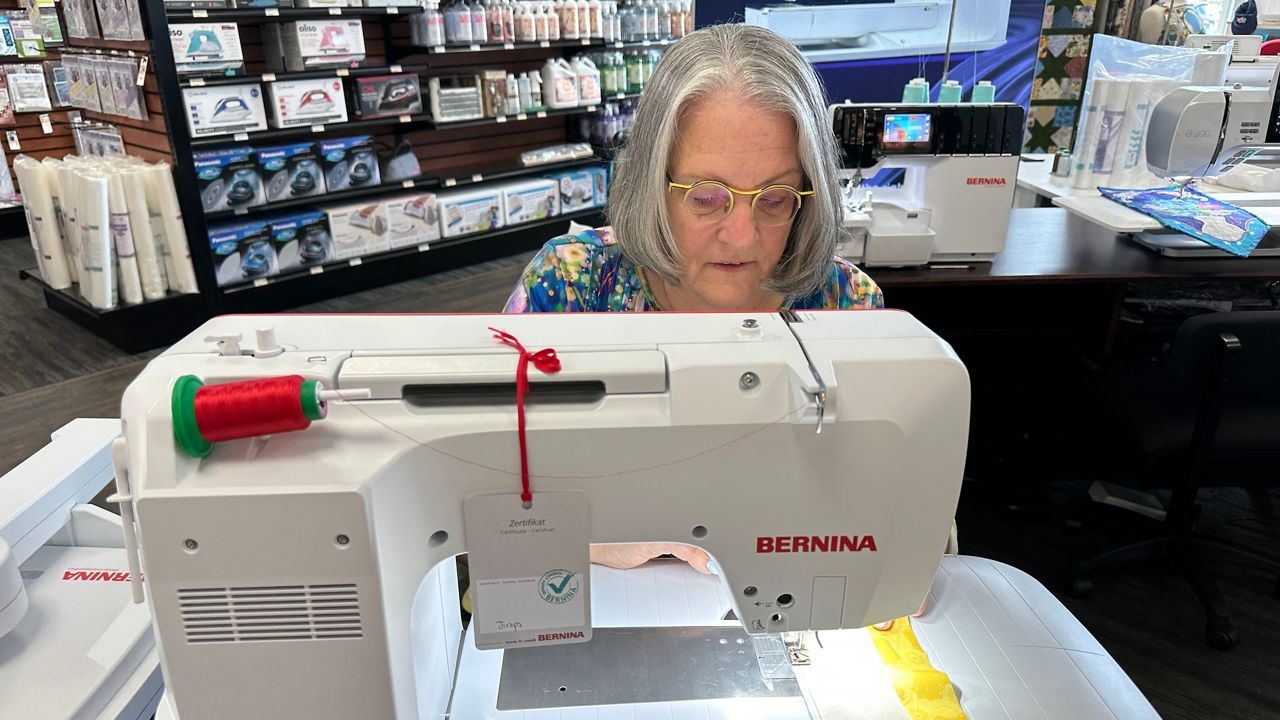MARSHFIELD, Wis. — The Marshfield Clinic Research Institute is asking for public participation in its Tick Inventory via Citizen Science (TICS) study, which is in its second year.
“Just based on its general appearance, I can tell it’s a deer tick,” said Emily Gruenling, a research associate who demonstrated how she uses a microscope to analyze ticks that are sent in by the public. “We can tell the life stage, the sex of the tick, along with the information that the participant provides, such as where they found said tick, what they were doing, what kind of preventative measures they took to locate any ticks that may have bitten them.”
Thanks to more than 6,000 tick samples sent in last year, Gruenling and other researchers are learning that new species of ticks are making their home in Wisconsin.
According to the Wisconsin Department of Health Services, the risk of Lyme disease and other tick-borne diseases is rising due to longer tick seasons. Ticks are especially active during warmer months and are present in every county in the state.
“We tend to get more wood ticks in our study than deer ticks,” said Dr. Alex Linz, associate research scientist. “We think that’s because they are bigger and easier to find. Unfortunately, the hard-to-find ones — the deer ticks — are the ones that carry disease in our area.”
Deer ticks carry Lyme disease, which is the most common tick-borne disease.
Marshfield Clinic Research Institute Executive Director Jennifer Meece said this work studying ticks ultimately helps with diagnosis, prevention and treatment of tick-borne diseases.

“Surveillance studies like this really are the boots-on-the-ground way that the citizens can participate in to help inform about new treatments, better diagnosis, earlier detection, all of those things,” said Meece.
That’s why the clinic is hoping to send more free tick collection kits out to people this year. When participants find a tick, rather than squishing it, they’re asked to put it in the small container provided and mail it into the clinic. Ticks can be dead or alive. Each kit comes with a unique identification number that people can look up to find out what they found.
Linda Donnerbauer, senior specimen processor, answers the calls and records addresses of where to send the kits.
“We get them to the hospitals, the DNR and anyone that requests displays,” she said.
Donnerbauer’s daughter, Amber, also works at the clinic and assembles the kits.
“You’ll be able to track and see what your ID is and then that way you’ll be able to find the information for your tick,” said Amber.
Gruenling said she hopes to get more samples than ever to analyze over the next few months as temperatures outside rise.
“We are really lucky to have such an enthusiastic community who is willing to participate in this type of research and help us figure out what’s out there,” said Gruenling.
To request a pre-paid collection kit be sent to you, contact tics@marshfieldclinic.org or 1-715-389-7796 (extension 16462).
Parks and nature centers interested in having kits available for their visitors also are encouraged to contact Marshfield Clinic Research Institute.











